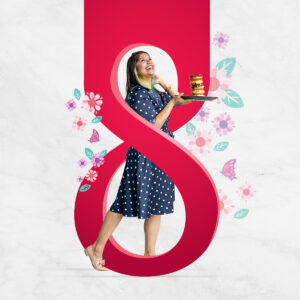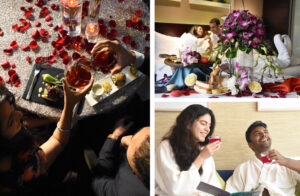A batch of new films made in Israel and Palestine seek to cross the cultural divide, both on screen and off. But can movies really help bring about co-operation? A political solution in the Middle East still seems like wishful thinking – but in 2013, are Arabs and Israelis moving slowly towards greater cultural co-operation? The signs have been there in recent months because of a number of collaborations, most notably, Bethlehem, by Yuval Adler. It won a prize at the Venice Film Festival and is Israel’s entry in this year’s Academy Awards. While The Hollywood Reporter summed up the plot pithily as “The Wire of the West Bank”, what makes the film special is that it is directed by Adler, an Israeli, and written by Palestinian journalist Ali Waked, who drew upon his long experience of reporting from the West Bank to write a thriller about the close relationship between an Israeli secret service agent and his Palestinian informant. Adler and Waked are friends as well as colleagues, and they chose their cast and crew, most of whom were not professional actors, from both Israel and Palestine. “We live in close proximity to each other – that is the reality,” says
Adler, “and we wanted to show this, on and off screen, that close relationships form. But at the end of the day, we didn’t want to make a political statement, we wanted to make a film. We wanted to try and leave politics out of it as much as possible.” Wishful thinking perhaps, because inevitably, in its reviews, Bethlehem has been judged on its politics, and not just within the Arab world. Haaretz, which is Israel’s oldest newspaper, has criticised it, declaring it to be one-sided. “Bethlehem,” it opines, “is yet another Israeli propaganda piece. His film’s message: the Israelis are the good guys, the Arabs the bad guys.” And also inevitably, not all filmmakers share Adler and Waked’s passion for co-operation. This year’s tenth Dubai International Film
Festival, the largest and most prestigious in the region, opened with the first ever film funded by Palestine – Omar, a story of star-crossed lovers set in an Arab town split down the middle by the infamous Israeli security wall. Director Hany Abu-Assad declares himself “proud to be flying the Palestinian flag for this film. Ninety-five percent of this film is from Palestine, and it reinforces the message that we are a nation.” He adds though that he believes there should be what he terms “a cultural boycott of Israel” in the film world under the present political conditions. “While I don’t object to perhaps collaborating with Israeli individuals who share my values,” he says, “I don’t think there should be anything like this going on for as long as we are under occupation. It should only take place when we are recognised as a nation.”Courting controversy Last year, the Dubai Film Festival took the step of filming one of the most politically controversial movies of the last two years – The Attack, by Lebanese director Ziad Douieri, the story of a Palestinian
doctor living in Tel Aviv, who discovers his wife has become a suicide bomber. Douieri had a part-Israeli cast, including the well-known actor Uri Gavriel, and also filmed in Israel – which, being Lebanese, he isn’t allowed to do. After screening in festivals in Dubai and Marrakesh, this year The Attack was banned in 22 Arab countries, much to the frustration of its Middle East distributor,Gianluca Chakra, managing director for Front Row Entertainment.
“It’s a shame because it’s a great film and deserved to be seen, but the producers were reluctant to hand over the film after it was banned in Lebanon.”
Douieri even met representatives of Hezbollah to explain his position, but accepts he made a political hot potato. Director Hany Abu-Assad declares himself “proud to be flying the Palestinian flag for this film. Ninety-five percent of this film is from Palestine, and it reinforces the message that we are a nation.” He adds though that he believes there should be what he terms “a cultural boycott of Israel” in the film world under the present political conditions. “While I don’t object to perhaps collaborating with Israeli individuals who share my values,” he says, “I don’t think there should be anything like this going on for as long as we are under occupation. It should only take place when we are recognised as a nation.” Courting controversy Last year, the Dubai Film Festival took the step of filming one of the most politically controversial movies of the last two years – The Attack, by Lebanese director Ziad Douieri, the story of a Palestinian doctor living in Tel Aviv, who discovers his wife has become a suicide bomber. Douieri had a part-Israeli cast, including the well-known actor Uri Gavriel, and also filmed in Israel – which, being Lebanese, he isn’t allowed to do. After screening in festivals in Dubai and Marrakesh, this year The Attack was banned in 22 Arab countries, much to the frustration of its Middle East distributor, Gianluca Chakra, managing
director for Front Row Entertainment. “It’s a shame because it’s a great film and deserved to be seen, but the producers were reluctant to hand over the film after it was banned in Lebanon.” Douieri even met representatives of Hezbollah to explain his position, but accepts he made a political hot potato.
“Even the investors in the film, who did come from Arab countries, wanted to remain anonymous,” he explains. “They said, ‘take the money, leave us off the credits.’ There is co-operation, but it’s all under the table still.” “It’s actually to Dubai’s credit that it screened The Attack in the first place, as it was turned down by neighbouring film festivals,” adds Chakra. “What made it so controversial was that Douieri is Lebanese. Ironically, there is greater co-operation and freedom of movement between Israel and Palestine. And then if you think of a film like Munich, made by Steven Spielberg and part-filmed in Israel, that didn’t get banned in the Middle East. “There are still rigorous censorship laws in place here and I think that we’re a long way off from screening a movie by a local Israeli film director, for example. Ironically, the commercial reality here too is that movies about politics in the Middle East don’t do so well over here.” Bridging the divide Dubai says of screening future Arab-Israeli co-operations, that if “any film represents the ethos of the festival, we will screen it, there are no set rules about what we choose to programme.” Nevertheless, perhaps these collaborations resonate more with audiences abroad – The Attack has screened in Europe, the USA and Australia. It was even shown in Jerusalem this year, with Douieri taking part in a Q&A via Skype. Viewers at last month’s UK Jewish Film Festival could see Rock the Casbah by 42-year-old Yair Horowitz, the incongruously entertaining story of 18-year-old Israeli troops during the First Intifada in 1989. It was made with a Palestinian and Israeli crew.So was the documentary Dancing in Jaffa, which goes one step further –literally – and shows renowned ballroom dancing master Pierre Dulaine teaching Israeli and Palestinian children to dance together in his hometown of Jaffa. Producer Diane Nabatoff recalls that “when we started, the kids absolutely hated each other and were spitting on each other, that kind of thing. By the end of a few weeks, they were holding each other as they danced, and respected each other. It was astonishing to watch. “There was massive resistance between both Palestinian and Israeli parents initially to having their children dancing together, but also by the end, lifelong friendships had been formed, and they were going to visit each other’s houses. This is incredible, because it’s a culture of separation – people never travel from one side of Jaffa to another. “Making the film achieved in ten weeks what others have been trying to achieve over decades.” Another film of 2013 also expressed a heartfelt plea for harmony – Ana Arabia by renowned Israeli director Amos Gitai. It tells the true
story of an Auschwitz survivor living with her Arab husband near Tel Aviv. The film is made with one uncut shot, which Gitai says symbolises “the possibility of us not being divided one day. I don’t know if it will happen in my lifetime, but if we can’t express unity through art, then where can we?”By Emma Jones – BBC Culture




